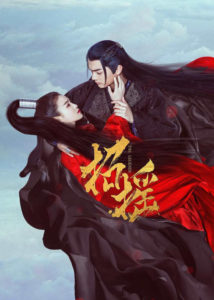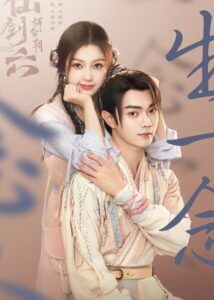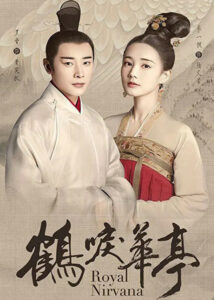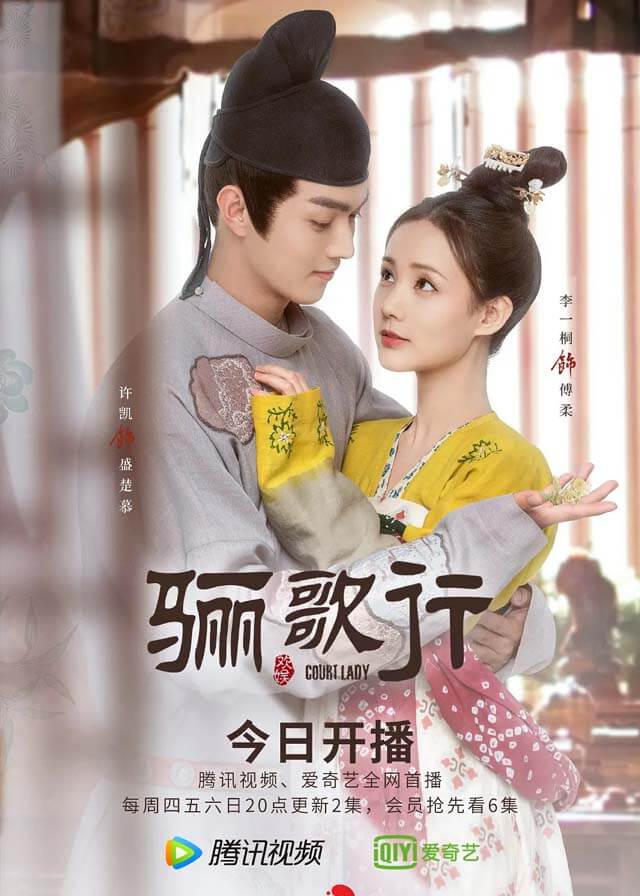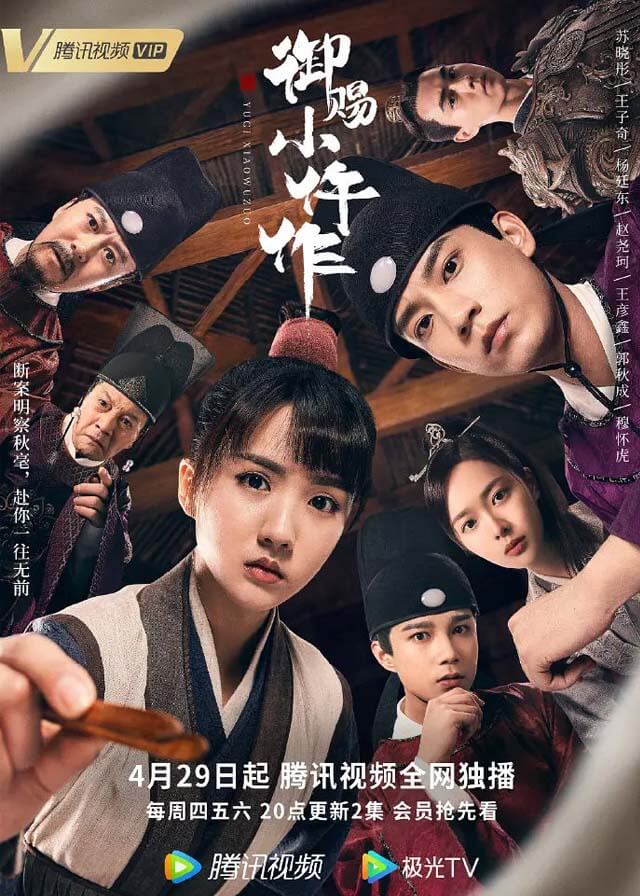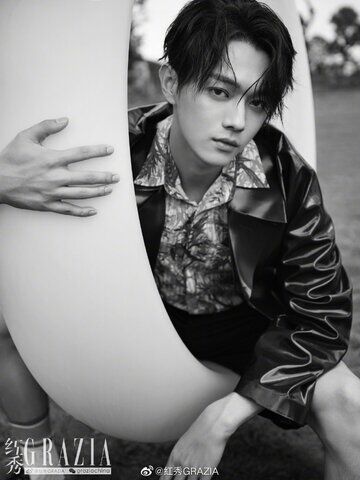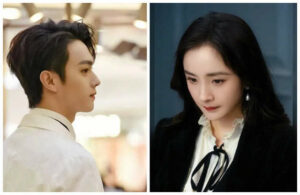Court Lady Episode 11 Recap
> Court Lady Recap
- 1
- 2
- 3
- 4
- 5
- 6
- 7
- 8
- 9
- 10
- 11
- 12
- 13
- 14
- 15
- 16
- 17
- 18
- 19
- 20
- 21
- 22
- 23
- 24
- 25
- 26
- 27
- 28
- 29
- 30
- 31
- 32
- 33
- 34
- 35
- 36
- 37
- 38
- 39
- 40
- 41
- 42
- 43
- 44
- 45
- 46
- 47
- 48
- 49
- 50
- 51
- 52
- 53
- 54
- 55
Sun Lingshu, seeing the Crown Prince in a somber mood, offered to dance for him. However, the Crown Prince had just been reprimanded by his father, the Emperor, for his lavish spending. Witnessing Sun Lingshu's extravagantly jeweled and pearl-adorned dance attire only fueled his anger, and he ordered her out of his sight, declaring he did not want to see her in such a "lavish look." As Sun Lingshu departed in a huff, she carelessly collided with Court Lady Situ.
Court Lady Situ, observing Sun Lingshu's reckless behavior and gaudy dress, began to lecture her. Still seething from the Crown Prince's rejection, Sun Lingshu snapped back, asserting her status as the Crown Prince's wife and dismissing Court Lady Situ as merely a "dog in the palace." In a fit of uncontrolled rage, Sun Lingshu then slapped Court Lady Situ.
When the Empress learned of the incident, she was greatly displeased by Sun Lingshu's arrogance, especially so early in her time in the palace. The Empress ordered Sun Lingshu to kneel outside her palace for one hour as punishment, remarking that if not disciplined, Sun Lingshu's insolence would eventually bring shame upon the Empress herself. Sun Lingshu, however, showed no remorse and secretly plotted her revenge.
Meanwhile, Sheng Chuling, acting on the Emperor's directive to reform his ways, embarked on a new path as a palace guard. He openly declared his intention to turn over a new leaf. He was assigned to guard the East Palace, a post he reluctantly accepted after unsuccessfully attempting to swap his assignment.
On the battlefield, Sheng Chumu was tasked with attacking Jiuzhu City, a fortress renowned for being impregnable, its rammed earth walls tougher than stone and unyielding to previous generations of attackers. His subordinate, Fu Tao, expressed concern about the daunting task. Sheng Chumu, however, reassured him that "there are no unbreakable walls in the world" and revealed his cunning plan: a water attack. He ordered his troops to dig a channel to flood the city.
After the city was submerged, the water was allowed to recede, leaving the city walls to bake under the sun for two days. Once the rammed earth became brittle and loosened from the alternating saturation and drying, Sheng Chumu ordered giant stones to be hurled at the lower sections of the walls. The combined force of the bombardment and the weight of the upper sections caused the seemingly invincible walls to collapse, leading to the swift capture of Jiuzhu City.
Lu Yunji and his son, Lu Qi, received the news of Sheng Chumu's unexpected success with grudging admiration and simmering fury. Lu Yunji and Lu Qi quickly led their main army into the newly captured Jiuzhu City. After Lu Qi reported that all official residences had been searched, yielding only two chests of jewels, Lu Yunji's generals, including General You, grew restless, eager for their share of the spoils.
They suggested searching the city itself, claiming that rebel wealth might be hidden in civilian homes. Lu Yunji, supported by Lu Qi, gave the order to "search the city," showing no mercy to the inhabitants, whom they labeled as "unruly civilians." Sheng Chumu soon learned of the Tang army's brutal looting and mistreatment of civilians, including the abduction of women, under the guise of searching for rebel remnants. He went to confront Lu Yunji.
However, Lu Yunji, anticipating Sheng Chumu's outrage and fearing he would report back to Chang'an, preempted him. He immediately issued a military order for Sheng Chumu to take merely 200 men to Anxi Gorge to scout for a small group of rebels, dismissing Sheng Chumu's protests about the small force and the city's chaos. He stressed that a "military order is to be obeyed" and warned Sheng Chumu to "mind your own business."
Anxi Gorge was notoriously known as the "Death Gorge" by the locals, and the mission with such a small contingent was clearly a trap set by Lu Yunji. Fu Tao, learning of the perilous assignment, urged Sheng Chumu to desert rather than face certain death. Sheng Chumu refused, citing his duty as the eldest son of Sheng Xiaojing and the reputation of his family. Fu Tao then offered to accompany him, but Sheng Chumu declined, deeming it too dangerous.
Instead, Sheng Chumu revealed a shocking secret to Fu Tao: the fire that killed Fu Tao's mother was not an accident. Sheng Chumu suspected the Lu family was behind it but lacked evidence and motive. He entrusted Fu Tao with the critical task of remaining behind to investigate and uncover the truth. Sheng Chumu also wrote three secret letters to his father, Sheng Xiaojing, sending them via different routes.
However, Lu Qi intercepted all three messengers, delivering the letters to his father. Lu Yunji, upon reading them, acknowledged Sheng Chumu's martial and strategic prowess, but reiterated his plan to ensure Sheng Chumu's demise in Anxi Gorge, believing it would be Sheng Xiaojing's ultimate heartbreak. Sheng Chumu and his men were soon surrounded in Anxi Gorge. They fought valiantly, suffering heavy losses, but managed to pinpoint the rebels' hideout.
Sheng Chumu then gave a map of the rebel stronghold and Anxi Gorge to one of his subordinates, instructing him to ensure it reached Fu Tao, hoping it would help the larger army and perhaps uncover the truth. Back in the palace, the Crown Prince, eager to win his father's favor and outshine Prince Zhou's recent counsel, sought advice from Duke of Chang.
The Duke suggested presenting an annotated version of "The Book of Han" by Yang Chishu, a scholar whose family had a long lineage of Confucian masters. The Crown Prince was delighted and immediately dispatched Duke of Chang to acquire the book. Later, Court Lady Situ arrived to deliver bird's nest soup from the Empress to the Crown Prince. The Crown Prince entrusted her with ten valuable pearls from the South Sea to present to his mother.
As Court Lady Situ carefully carried the pearls, her gown caught on a nearby rack. She placed the pearls on a shelf to free herself, then was distracted by two maids arguing loudly, which she went to reprimand. Unbeknownst to her, during this brief absence, someone stealthily removed three pearls and hid them in a nearby vase. Fu Rou witnessed this but chose not to intervene immediately.
When Court Lady Situ returned and discovered the missing pearls, she was terrified and rushed to apologize to the Crown Prince. At that moment, Fu Rou arrived to deliver embroidery. She saw Sun Lingshu maliciously implying Court Lady Situ's incompetence. Knowing the truth, Fu Rou subtly intervened. Under the pretext of testing a new tablecloth, she directed a servant to the vase, where the missing pearls were discovered. Court Lady Situ realized she had been framed.
The Crown Prince, already exasperated by various palace affairs, chose not to delve further into the matter, declaring that finding the pearls was enough. Later, during dinner with Sun Lingshu, the Crown Prince confronted her about the missing pearls, which she tacitly admitted. Instead of blaming her, he reflected on his own neglect of Sun Lingshu, believing it had led to her mischievous acts.
Sun Lingshu, in turn, tearfully pledged never to repeat such a mistake, promising to be his "fairy in the petals" forever. Court Lady Situ, realizing Fu Rou had intentionally helped her, sought her out at the Administration Bureau for a private conversation. She expressed surprise, thinking Fu Rou might resent her for failing her during the inner court exam. Fu Rou admitted she had not understood Court Lady Situ's earlier actions.
Court Lady Situ then revealed that Princess Consort Han had instructed her to fail Fu Rou. She explained that passing the inner court exam meant becoming a "woman of His Majesty," an identity that would prevent Fu Rou from ever marrying without the Emperor's explicit permission, or condemning her to a life of solitude if she left the palace. Fu Rou, realizing the protective intentions behind Princess Consort Han and Court Lady Situ's actions, expressed her gratitude.
Fu Rou continued her duties, delivering an exquisite "Hundred Birds of Prey" embroidery to the Empress and Grand Consort Su, both of whom were deeply impressed. The Empress, discovering Fu Rou's knowledge of distant lands and merchants from her hometown of Guangzhou, was captivated and asked her to share more stories.
Prince Qin, who had initially asked Fu Rou to make a jade flute pouch, was also listening with great interest and later requested more stories, to which she agreed to do both the pouch and the storytelling. Prince Zhou, ever observant of palace goings-on, invited Fu Rou to Ling Xiao Pavillion. There, he had set up a swing he made himself.
Fu Rou initially dismissed it as "children's play," but Prince Zhou explained its ancient origin as a "prayer object" for longevity. Remembering Sheng Chumu, Fu Rou climbed onto the swing, praying silently for his safe return. She soared higher, her heart filled with longing, almost losing her balance before Prince Zhou caught her. In his concern, he accidentally called her by her personal name, "Rou'er," which Fu Rou gently rebuked, asking him not to use it again.
Undeterred, Prince Zhou pressed her to go horse-riding with him the next day. When Fu Rou hesitated, he subtly threatened to ask the Emperor to grant her an early passage through the inner court exam, which would tie her to the palace forever. Realizing his manipulative tactics, Fu Rou called him "Despicable," to which he retorted, accusing her of colluding with Court Lady Situ to fail the exam and avoid serving the Emperor.
Despite the tension, Fu Rou was compelled to agree. The following day, while riding horses with Prince Zhou, she again nearly fell, only to be caught by him. His horse, however, trampled a farmer's crops. Having no money, Prince Zhou gave the farmer his personal fan, instructing him to take it to the Huangsan Silk Store in Chang'an for 50 quan, assuring him of its value.





